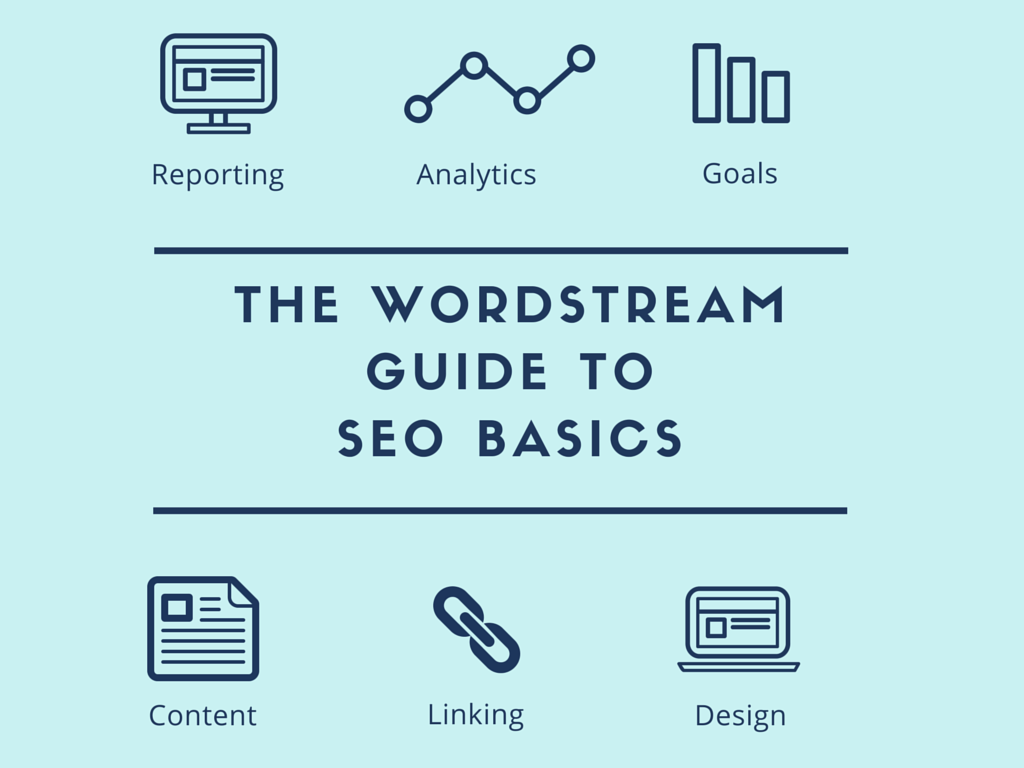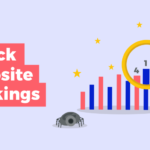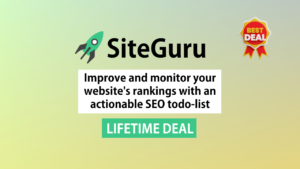SEO is crucial for online success. It helps websites rank higher on search engines.
Understanding SEO basics can boost your online presence. Search Engine Optimization (SEO) might seem complex, but it’s essential. By mastering SEO basics, you can improve your website’s visibility. This means more traffic and potential customers. SEO involves using the right keywords, creating quality content, and optimizing your website’s structure.
These steps help search engines understand and rank your site better. Anyone can learn SEO basics with the right guidance. In this blog post, we will break down the fundamentals of SEO. We’ll cover key strategies and tips to help you get started. Whether you’re a beginner or need a refresher, this guide will be invaluable. Stay tuned to learn how to enhance your website’s performance.
Table of Contents
ToggleKeyword Research
Understanding keyword research is crucial for successful SEO. It involves identifying words and phrases your target audience uses in search engines. These keywords guide your content strategy and help attract organic traffic. Below, we delve into the essentials of keyword research.
Finding Relevant Keywords
Finding relevant keywords starts with brainstorming. Think about what your audience searches for. Consider their needs and questions. Create a list of potential keywords. Next, examine your competitors. Look at the keywords they target. This helps identify gaps and opportunities.
To further refine your list, use search engines. Type in your potential keywords. Observe the suggestions and related searches. These insights reveal what people are interested in. Aim for a mix of short-tail and long-tail keywords. Short-tail keywords are broad and competitive. Long-tail keywords are specific and less competitive.
Using Keyword Tools
Keyword tools are invaluable for thorough research. They provide data on search volume, competition, and trends. Here are some popular tools:
- Google Keyword Planner: Free tool that offers search volume and forecasts.
- Ahrefs: Paid tool with in-depth keyword analysis and competitor insights.
- SEMrush: Comprehensive tool that includes keyword research and SEO audits.
- Ubersuggest: Free tool by Neil Patel that offers keyword suggestions and data.
Using these tools, enter your potential keywords. Analyze the results. Focus on keywords with high search volume and low competition. Also, look for related keywords and phrases. These can broaden your content strategy and increase visibility.
| Tool | Features | Pricing |
|---|---|---|
| Google Keyword Planner | Search volume, forecasts | Free |
| Ahrefs | Keyword analysis, competitor insights | Paid |
| SEMrush | Keyword research, SEO audits | Paid |
| Ubersuggest | Keyword suggestions, data | Free |
Effective keyword research forms the foundation of your SEO strategy. It helps you create content that resonates with your audience and ranks well in search engines.

Credit: visitpalmsprings.com
On-page Optimization
On-page optimization is a crucial aspect of SEO. It involves optimizing individual web pages. This helps them rank higher and earn more relevant traffic. Understanding the basics can make a big difference. Let’s dive into some key components.
Title Tags And Meta Descriptions
Title tags are essential for SEO. They tell search engines what your page is about. Keep your title tags under 60 characters. This ensures they display correctly in search results. Include important keywords to improve visibility.
Meta descriptions provide a brief summary of your page. They appear below the title tag in search results. Aim for 150-160 characters. This length ensures your description is fully visible. Use action-oriented language to attract clicks. Include your main keywords naturally.
Here is an example of a title tag and meta description:
| Element | Example |
|---|---|
| Title Tag | |
| Meta Description |
Header Tags And Content Structure
Header tags (H1, H2, H3, etc.) organize your content. They help search engines understand your page structure. Use for the main title. Use for major sections. Use for subsections.
Here is a simple outline:
Main TitleMajor SectionSubsection
Well-structured content improves readability. It also helps search engines crawl your site effectively. Use short paragraphs and bullet points. This makes your content easy to scan.
Remember to keep your language simple and clear. Avoid long sentences. This makes your content accessible to a wider audience.
Quality Content Creation
Creating quality content is crucial for SEO success. It attracts readers, keeps them engaged, and encourages them to share. Your content should be informative, engaging, and valuable. This will help you rank higher on search engines and attract more visitors to your website.
Writing Engaging Content
Engaging content captures the reader’s attention. It makes them want to read more. Here are some tips:
- Start with a strong headline.
- Write short, clear sentences.
- Use active voice.
- Include interesting facts or stories.
- Break up text with subheadings and bullet points.
These techniques make your content easier to read and more enjoyable.
Using Keywords Naturally
Keywords help search engines understand your content. But they should be used naturally. Here’s how:
- Research keywords related to your topic.
- Include them in your headline and subheadings.
- Use them in the first 100 words of your content.
- Sprinkle them throughout your article.
- Ensure they fit naturally into sentences.
Overusing keywords can hurt your SEO. Aim for a natural flow. This helps search engines and keeps readers engaged.
Technical Seo
Technical SEO involves optimizing your website’s infrastructure to improve its visibility in search engines. This aspect of SEO focuses on the backend structure, making sure your site is easy to crawl and index. Now, let’s dive into some essential elements of technical SEO.
Improving Website Speed
Website speed is crucial for both user experience and search engine rankings. A slow site can lead to higher bounce rates and lower user engagement. Here are some ways to improve website speed:
- Minimize HTTP Requests: Reduce the number of elements on your page.
- Enable Compression: Use tools like Gzip to compress your files.
- Optimize Images: Resize images and use the right format.
- Use a Content Delivery Network (CDN): Distribute content across various servers.
Mobile-friendliness
With the increasing use of mobile devices, ensuring your website is mobile-friendly is vital. Google uses mobile-first indexing, meaning it primarily uses the mobile version of your site for ranking. Here are some tips to make your site mobile-friendly:
- Responsive Design: Use flexible layouts and images.
- Viewport Meta Tag: Ensure your website scales correctly on all devices.
- Touch-Friendly Navigation: Make buttons and links easy to tap.
- Fast Loading Times: Optimize for quicker load times on mobile.
Implementing these technical SEO strategies will help improve your site’s performance and visibility. Focus on website speed and mobile-friendliness to provide a better user experience and enhance your search engine rankings.
Link Building Strategies
Link building is an essential SEO strategy. It helps improve your site’s authority and rankings on search engines. But what are the best link building strategies? Let’s explore two key techniques: internal linking and acquiring backlinks.
Internal Linking
Internal linking connects pages within your website. It helps users and search engines navigate your site. Here are some tips for effective internal linking:
- Use descriptive anchor text
- Link to relevant content
- Ensure a logical link structure
Consider creating a table of internal links:
| Page Title | Link |
|---|---|
| Home | /home |
| About Us | /about-us |
| Contact | /contact |
Acquiring Backlinks
Backlinks are links from other websites to your site. They signal to search engines that your content is valuable. Here are some methods to acquire backlinks:
- Write high-quality content
- Guest post on reputable blogs
- Collaborate with influencers
High-quality content attracts backlinks naturally. Guest posting helps you reach new audiences. Collaborations enhance your site’s credibility.
Remember, not all backlinks are equal. Focus on quality over quantity. Backlinks from reputable sites have more value. Keep these strategies in mind to improve your SEO.
Analyzing Seo Performance
Analyzing SEO performance is crucial. It helps to understand your website’s effectiveness. You can see what works and what needs improvement. By analyzing your SEO, you can make informed decisions. This will help you achieve better rankings and more traffic.
Using Analytics Tools
Analytics tools are essential for monitoring your SEO performance. They provide detailed insights into your website’s data. Here are some popular tools:
- Google Analytics: Tracks website traffic and user behavior.
- Google Search Console: Monitors site performance in search results.
- SEMrush: Offers keyword tracking and competitive analysis.
- Ahrefs: Provides backlink analysis and SEO audit.
These tools can help you identify trends, track your progress, and find areas for improvement.
Tracking Key Metrics
Tracking key metrics is vital for understanding your SEO performance. Some important metrics to monitor include:
- Organic Traffic: The number of visitors from search engines.
- Bounce Rate: The percentage of visitors who leave after one page.
- Conversion Rate: The percentage of visitors who complete a desired action.
- Keyword Rankings: Positions of your target keywords in search results.
- Backlinks: The number and quality of links pointing to your site.
By keeping an eye on these metrics, you can gauge your SEO success. It will also help you identify areas that need improvement.
| Metric | Description |
|---|---|
| Organic Traffic | Visitors from search engines |
| Bounce Rate | Visitors leaving after one page |
| Conversion Rate | Visitors completing desired actions |
| Keyword Rankings | Positions of target keywords |
| Backlinks | Links pointing to your site |
Regularly tracking these metrics ensures you stay on the right path. It also enables you to adjust strategies for better results.
Staying Updated With Seo Trends
SEO is an ever-evolving field. New trends and updates appear regularly. Staying updated with these changes is crucial for success. By keeping up with the latest SEO trends, you can ensure your site remains competitive and optimized. Below are some effective ways to stay informed about SEO trends.
Following Industry Experts
Industry experts often share valuable insights and updates. Follow them on social media platforms like Twitter and LinkedIn. Subscribe to their blogs and newsletters. Here are some popular SEO experts to follow: These experts regularly share their knowledge about the latest trends and best practices in the SEO industry. By staying updated with their content, you can improve your own SEO strategies and stay ahead of the competition. Additionally, keep an eye out for upcoming webinars or conferences where these experts may be speaking, as they often provide valuable information and networking opportunities. And don’t miss the ultimate SEO tool showdown, where these experts will compare and review the latest tools and techniques for optimizing your website’s search engine ranking.
- Rand Fishkin – Founder of Moz and Sparktoro
- Neil Patel – Co-founder of Neil Patel Digital
- Barry Schwartz – Founder of Search Engine Roundtable
These experts often share the latest updates and best practices. Their insights can help you stay ahead of the curve.
Regularly Updating Content
Regular updates to your content are essential. Search engines favor fresh and relevant content. Here are some tips for updating your content:
- Review old articles and update them with new information.
- Check for broken links and replace them with active ones.
- Optimize content with new keywords and phrases.
Updating your content keeps it relevant and valuable for your audience. This practice improves your search engine rankings.
| Task | Frequency |
|---|---|
| Review old articles | Monthly |
| Check for broken links | Bi-weekly |
| Optimize content | Quarterly |
By following these strategies, you can keep your content fresh and engaging. This will help you stay updated with SEO trends and maintain a competitive edge.

Credit: www.wordstream.com

Credit: backlinko.com
What Are the Essential Tips for Boosting Your Website’s Ranking as Suggested in Best SEO Practices?
Looking to boost your website’s rankings today? Follow best SEO practices by optimizing your website with relevant keywords, creating high-quality content, obtaining backlinks from reputable sites, improving website speed, and ensuring mobile-friendliness. Regularly monitor and analyze your website’s performance to make necessary adjustments for better rankings.
How can Backlink Strategies Help in Boosting Website Ranking as discussed in SEO Basics?
In SEO Basics, it’s emphasized that you can boost your seo with proven backlink strategies. Backlinks from reputable sites can enhance your website’s credibility and authority in the eyes of search engines. They help drive more traffic and improve your website’s ranking, making it an essential component of any SEO strategy.
Frequently Asked Questions
What Is Seo?
SEO stands for Search Engine Optimization. It’s the process of optimizing your website to rank higher in search engine results, improving visibility.
Why Is Seo Important?
SEO is crucial for increasing website traffic. It helps your site appear in relevant search results, attracting more potential customers.
How Do Keywords Impact Seo?
Keywords are essential for SEO. They help search engines understand your content and match it with relevant search queries, improving visibility.
What Are Backlinks In Seo?
Backlinks are links from other websites to yours. They act as votes of confidence, improving your site’s authority and search engine ranking.
Conclusion
SEO basics are essential for any website’s success. By understanding and implementing these simple strategies, you can improve your site’s visibility. Focus on keywords, quality content, and proper website structure. Consistent updates and monitoring will help maintain your rankings. With these foundational steps, your website can achieve better search engine results. One important aspect of SEO is building quality backlinks, which can improve website rankings. By obtaining backlinks from reputable and relevant sources, you can boost your site’s authority in the eyes of search engines. Additionally, optimizing your website for speed and mobile-friendliness can also improve website rankings. Another important aspect of SEO is optimizing for user experience. This includes easy navigation, clear calls-to-action, and engaging multimedia content. By creating a positive user experience, you can boost website rankings and encourage visitors to spend more time on your site. Additionally, implementing local SEO strategies, such as creating Google My Business listings and obtaining positive reviews, can also boost website rankings in local search results.
Start applying these SEO basics today for long-term benefits. Happy optimizing!







